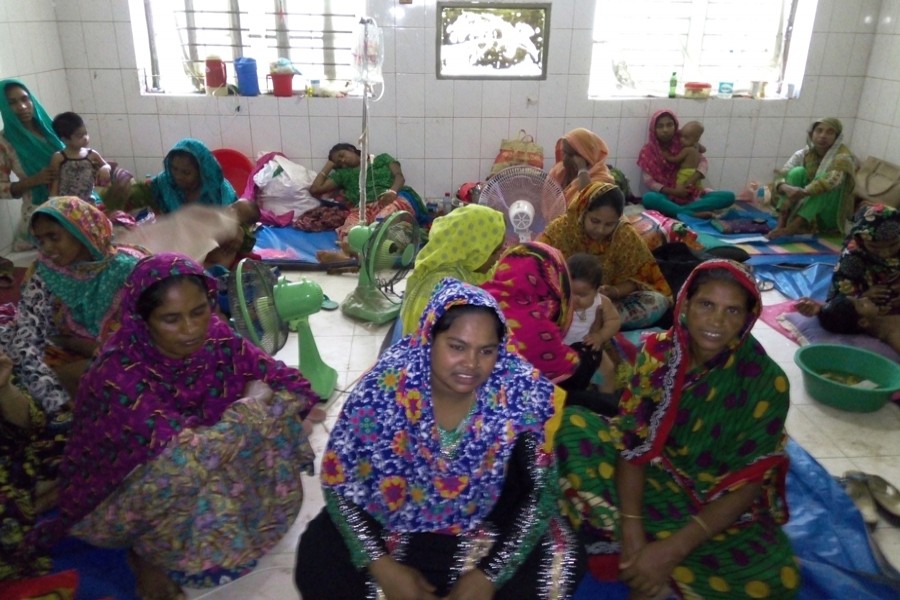JHENIDAH, May 28: Jhenidah Sadar hospital has been struggling with hundreds of diarrhoea patients for the last four days. The cause behind the sudden huge outbreak of the disease is yet to be identified.
The number of diarrhoea patients taking admission in the hospital was four times greater than that of usual admission, said Shamim Ara, senior staff nurse in-charge, contagious disease.
A total of 152 diarrhoea patients were admitted in the hospital during the time while the number of beds in the contagious ward is 25. So, patients had to be on the floor and temporary camps at the hospital. Besides, several hundred others were given treatment at the outdoor.
Most of the patients came from two particular areas Kalabagan and Kanchannagar of Jhenidah municipality under water supply tank no. 1.
The concerned doctors apprehended that the disease may have ensued from water contamination.
Azmal Ali (55), a patient from Kanchannagar told this correspondent at the diarrhoea ward that he had been infected with the disease after taking Iftar and drinking water of supply line in the area.
Another patient Priyonti said that about 50 per cent students of their cadet coaching centre at Kanchannagor suffered from diarrhoea after drinking supply water.
Dr Mokarram Hossain, disease specialist in Jhenidah Sadar hospital said, "A team of specialists is coming from Dhaka to ascertain the cause of the sudden massive occurrence of diarrhoea in two particular areas of the municipality."
He added that diarrhoea patients visiting the outdoor had been advised to take oral saline and other liquid food such as coconut water, pulse water, rice starch, rice powder etc. In addition, everyone has to drink boiled water and to wash hands after using toilets.
Dr Mokarram also added that it is necessary to avoid oily food after fasting. Then the occurrence of diarrhoea will decrease.
Meanwhile, there was acute shortage of medicine for diarrhoea patients in Jhenidah Sadar Hospital. The hospital got no medicine of Ciprofloxin group in 2018. The supply of cholera saline ran short in February. Besides, there was no supply of medicine of Ranitidine group for the last one month, according to concerned sources.
Since the rapid outbreak of the contagious disease, Mayor of Jhenidah municipality Alhaz Saidul Karim Mintu arranged 50 bags of cholera saline while civil surgeon had given 60 bags.
Earlier on May 17, 125 persons suffered from diarrhoea that started from food poisoning in Kotchandpur upazila in the district.


